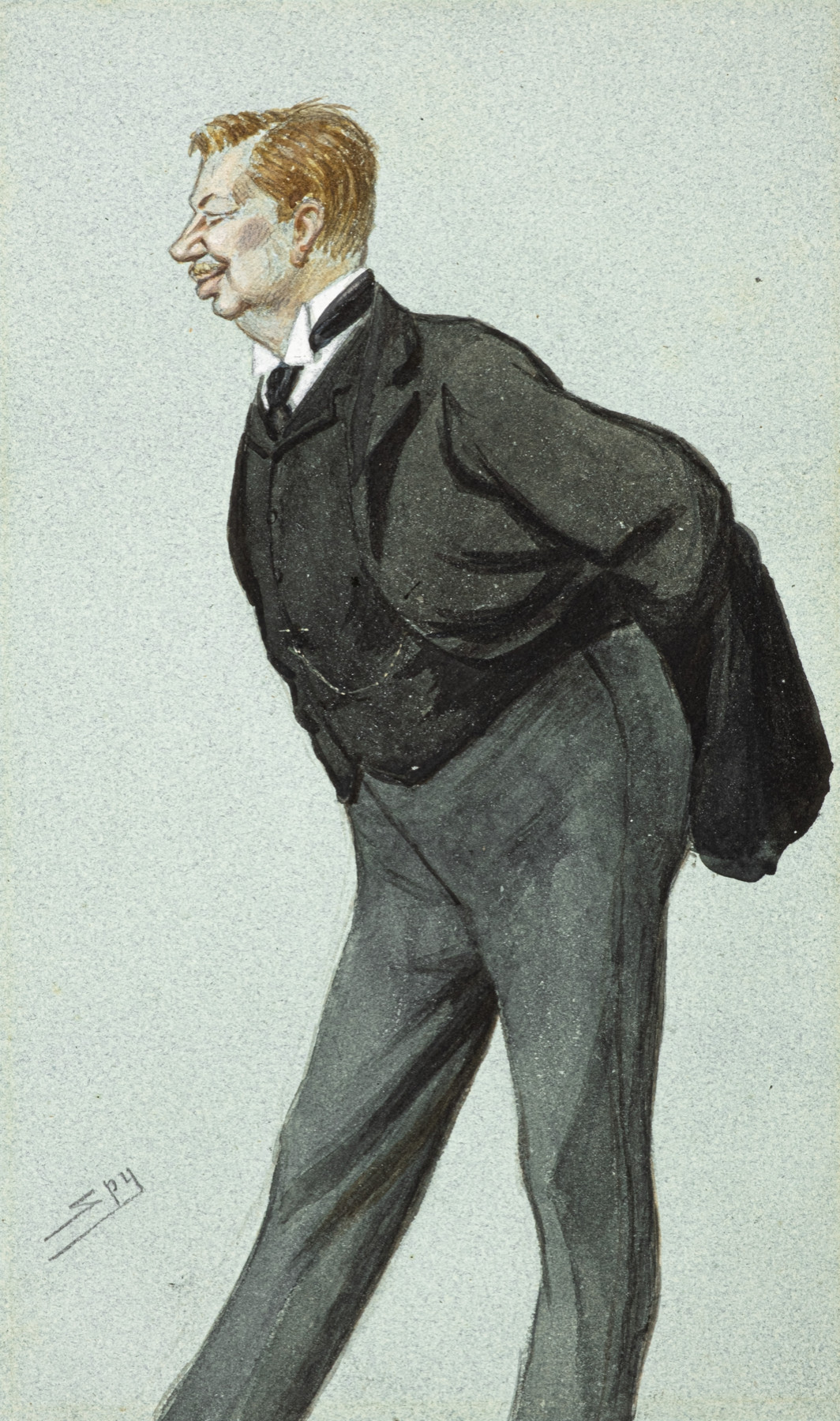
(click image to enlarge)
The nephew of the Foreign Secretary Earl Granville, Sir George Granville Leveson-Gower (1858-1951) first entered into politics as private secretary to William Gladstone in 1880, a position he held throughout Gladstone’s second government. From 1885 to 1886 he was Liberal MP for North-West Staffordshire. After losing his seat in 1886, he was returned as MP for Stoke-on-Trent in 1890 and held the seat until 1895. He wrote regularly for the periodicals and in 1899 became European editor of the North American Review.
“In the ill-fated Parliament which recently expired, a sturdy and rather hearty-looking young man, but good-humoured withal, was among the most regular of all the Members attending the House of Commons. He came early and stayed late. In the small hours of the morning, after a long and wearisome sitting, he sometimes took furtive naps on the Treasury Bench; but as a rule he was brisk and watchful, and cheerfully aided the chief Liberal Whips in their duties. Moreover he read out at question-time, with suitable emphasis, the replies to such Parliamentary conundrums as were addressed to the Office of Works, and altogether he gave on-lookers the impression that he dearly loved the House of Commons and the labours of a Junior Lord of the Treasury. But Mr. George Leveson-Gower, for such was the name of this plodding Junior Lord, has ceased to be a Member of Parliament, and the Treasury Bench knows him no more. Probably, however, his exile is only temporary, for a nephew of Lord Granville and a former private secretary to Mr. Gladstone, does not, as a rule, sink below the horizon never to be heard of again. His late constituency, North-West Staffordshire, rejected him at the General Election, but no doubt Mr. Leveson-Gower - apostrophised by Mr. Gladstone as ‘My dear George’ has been more than compensated for his defeat by receiving an autograph letter from his friend and patron denouncing the ‘blackguardism and baseness’ of William Pitt. Hitherto Mr. Leveson-Gower has not given much promise of statesmanship, but as he is yet on the sunny-side of thirty his friends have not abandoned the hope that he may some day rise to the dignity of an Under-Secretary. Failing that, the inevitable Commissionership with which Mr. Gladstone's private secretaries are rewarded will probably be his lot. He is a kind-hearted, modest, unobtrusive youth, and is not deficient in common sense of the solid type. He has no enemies, because he is of no consequence.”